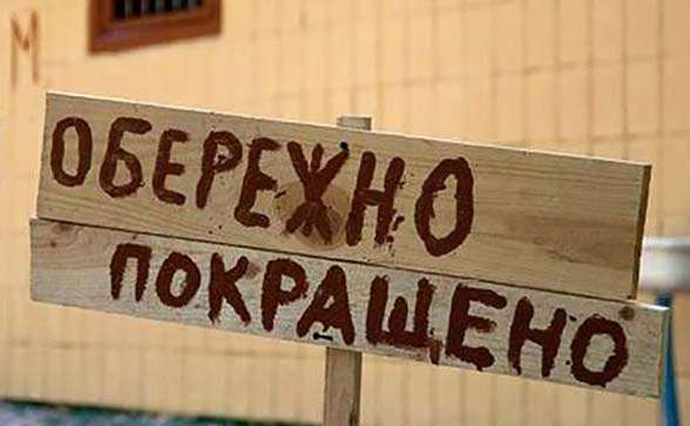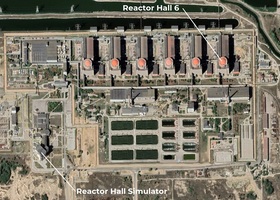Experts urge authorities to expedite reforms in the energy and environment sectors
On 14 December, Ukrainian and European experts presented an evaluation of reforms in the energy and environment sectors in 2017.

The implementation by Ukraine of the EU-Ukraine Association Agreement in these sectors is regularly monitored by 6 working groups under the project “Increasing the influence of civil society over monitoring and political dialogue concerning reforms in the energy and related sectors in the course of implementation of the Association Agreement”. This project is financed by the European Union and Renaissance International Foundation.
GAS
Speaking about the key trends and events of 2017 in the gas sector, experts regard as negative the speed of unbundling Naftogaz, the price revision mechanism, the unregulated mechanism of using state-owned gas distribution systems and the new tariffs for distribution services.
Roman Nitsovych, Dixi Group’s Head of Projects and Programs named the first victory in Stockholm Arbitration Institution, continuing corporate reform of Naftogaz, the introduction of supply quality standards by NCREUS and the coming of foreign traders to the Ukrainian market as positive decisions.
The experts named the unbundling of Naftogaz as a key objective for the government in 2018.
ELECTRICITY
According to the Head of Electricity and Nuclear Security Expert Group Svitlana Golikova, measures envisaged by the Association Agreement Implementation Plan are, in general, being fulfilled, although it mostly concerns transformation of requirements at the legislative level.
Thus, the Verkhovna Rada of Ukraine has passed the Law on the Electricity Market, the Cabinet of Ministers has created the Coordination Center, publication and discussion of first regulatory acts required to organize the market’s functioning has begun this past fall, corporatization of Ukrenergo NEC went underway, and first steps have been made toward reorganization of Energorynok SE.
“Unfortunately, this work has been suspended due to deliberate incapacitation of NCREUS to make the necessary decisions. The Government has adopted the Energy Strategy of Ukraine for the period until 2035 called “Security, Energy Efficiency, Competitiveness”, but its implementation plan is nonexistent for the time being”, Svitlana Golikova said.
ENERGY EFFICIENCY
As far as energy efficiency in concerned, experts regard as an achievement the passage of all required laws from the so-called ‘energy efficiency package” (Law on the Energy Efficiency Fund, Law on the Energy Performance of Buildings, Law on Commercial Metering of Heat and Water Supply, Law on Housing Maintenance and Utility Services).
According to OPORA Public Network’s Program Coordinator Tetiana Boiko, negative aspects include insufficient financing of the “warm loans” program from the 2018 State Budget and the delay with adopting and publishing key documents concerning the Energy Efficiency Fund.
“The Energy Efficiency Fund will become operational in terms of implementing its goals in July 2018 at the earliest. The reason is that passage of the bylaws requiring certification and audit of buildings is expected after their approval by the Scientific-Technical Board of the Ministry of Regional Development as scientific findings. This process takes more than 3-4 months.
“Therefore, in 2018 associations of apartment building co-owners (AABCs) will probably be deprived, for some time, of the right to receive government support for implementation of energy-efficient measures. In addition, the algorithm for AABCs is not provided by bylaws, in particular, acts of the Fund’s Supervisory Board, which may be one of the reasons for low demand for the Fund’s products”, Tetiana Boiko said.
BUSINESS CLIMATE
Speaking about business regulation, experts note that the process of rotating NCREUS members has been launched too late because of deliberate delaying. The Verkhovna Rada, the government and the president have delegated their representatives and completed the staffing of the Selection Contest Commission only in the fall. As a result, NCREUS members did not have a quorum and the Verkhovna Rada had to urgently pass amendments to the Law on NCREUS, empowering the president to appoint commissioners to vacant positions for 3 months without a contest.
For the time being, the reform of public procurements remains one of the most successful ones, but according to Andrii Panin, there were two attempts in 2017 to derail it by amendments to certain laws. The first attempt took place in spring, when a proposal was put forth to extend applicability of the “critical infrastructure” term onto electronic platforms, in particular, ProZorro. It would’ve meant obligatory control of these platforms by law enforcement authorities, thus creating preconditions for exerting pressure on businesses. Nevertheless, thanks to a broad resonance, these amendments were excluded from the draft law before the second reading.
ENVIRONMENT
Experts regard the passage of the law on assessment of environmental impact and adoption of the National Plan on Reduction of Emissions from Large Combustion Plants as the biggest achievement in the environment sector in 2017. Nevertheless, both these documents require a number of bylaws in order to be implemented in practice.
“As for the law on assessment of environmental impact, it should enter into effect on 18 December, but not a single bylaw has been passed yet. As for the National Plan on Reduction of Emissions (NPRE), on 1 December 2017 the Energy Ministry should have submitted to the Cabinet of Ministers a draft action plan on implementation of the NPRE for 2018, and the Ministry of Ecology and Natural Resources has to amend technological standards on the acceptable rate of pollutant emissions by these plants within 3 months after NPRE is approved”, Natalia Andrusevych, an expert at Society and the Environment Resource Analysis Center explains.
OIL
According to the expert Hennadii Riabtsev, results achieved by the government in the oil sector have less and less correlation with the officially announced plans. There is an increasing number of reports about decisions made by the authorities, despite the continuing work on them. Inspections of the responsible institutions unexpectedly revealed that work on the pompously-announced projects has stopped. The Ministry of Energy and Coal Industry, Ministry of Ecology and Natural Resources, and State Geological Service consider a number of objectives accomplished, even though the draft documents they developed have been returned for improvement.
“Deadlines for the completion of a number of objectives, in particular, creation of the minimum stocks of oil and petroleum products, adoption of the revised Code on Extractable Resources, approval of recommendations concerning control of gasoline filling stations are being extended without any explanations. The reasons for defaulting on obligations are not analyzed, persons responsible for the failure to meet deadlines are not being identified, and the fact no resources have been allocated for implementation of postponed objectives in the future periods is being disregarded”, Hennadii Riabtsev sums up.








